|
By Rosilee Sherwood I’d like to introduce to you our theme for the next several weeks. We are going to be revisiting some of the bible stories that are often taught to children. When I was a kid I went to Sunday School each week and my Sunday School teacher had something called a flannelgraph. It was a board with a sheet of flannel over it that she’d have set up on an easel. Then all of the lovely bible characters would be cut out of felt and we’d be able to put them onto the board to show what was happening in the story. Our goal, over the next several Sundays is to take these stories off the flannelgraph, out of the picture book bible, and dig deeper to try and uncover the many layers of complexity and richness that are left out when we make these stories for children.
1 Comment
By Caleb Ratzlaff Prioritizing profit over the well-being of people seems like a bad idea, for businesses, for society at large, as well as for religious sects. Two stories contained in Acts chapter 19 remind us of this self-evident truth providing an economic lesson. Both concern religious sects that struggle against or outright oppose “the Way” as taught by Paul. My argument here is that each sect takes issue with Paul following his advice would mean that they could no longer enrich themselves at the expense of others.
By a friend from the Commons It's an interesting time in Hamilton. Condos are booming, and students are moving into the core, followed by priced-out renters and buyers from Toronto. How the city works is changing. Still, the old churches keep up with traditional outreach methods. Old notions of service and charity are everywhere. Food banks do their food bank thing; meal programs do their meal programs. Charity doesn't change, even as rents go up and homes double in value as waves of people move in from Toronto.
That's where I want to start--waves of people. If we want to talk about being a just city, it comes down to each and every one of us--our actions, and our moral responsibilities. The question is simple: Who are we responsible for? Christ teaches us that no, it's not just about our kin, our immediate people, our blood; it’s about how we show hospitality to all who come into our lives, especially those who are invisible to a rapidly gentrifying city like Hamilton. By Caleb Ratzlaff In apocalyptic style, John the Baptist introduces us to three components of Christ’s kingdom of peace: repentance, the Holy Spirit, and fire (Matthew 3:7-12). What comes after is often referred to as “Christ’s Baptism,” but if we consider the examples below and the exegesis that follows, it’s clear that John experiences a kind of baptism as well.
Regrettably, my wife Jenica did the vast majority of our wedding planning on her own. It’s no surprise that my failure to offer a help was a source of conflict on several occasions. For example, one evening, while Jenica was making wedding invitations, I looked up from my computer to realize that she was gone. Distracted, I hadn’t noticed her leave the room. Often when Jen’s upset she wisely disappears to cool-off before evaluating the situation. So when I realized that I was alone with a mountain of unfinished invitations, I knew something was amiss. The feeling I had at that moment is something I think we’ve all experienced. It’s the moment we realize that we’ve let down those we depend on. Jen expected my help. It was our wedding after all and weddings take at least two people, not counting all the support contributed by family and friends. Repentance, I want to argue, is the realization that we don’t do life on our own. We depend on a power greater than ourselves — friends, family, neighbors, government, water, soil, oxygen and in these God.
By Caleb Ratzlaff
Lament over the Destruction of Jerusalem
1 By the rivers of Babylon-- there we sat down and there we wept when we remembered Zion. 2 On the willows[a] there we hung up our harps. 3 For there our captors asked us for songs, and our tormentors asked for mirth, saying, “Sing us one of the songs of Zion!” 4 How could we sing the Lord’s song in a foreign land? 5 If I forget you, O Jerusalem, let my right hand wither! 6 Let my tongue cling to the roof of my mouth, if I do not remember you, if I do not set Jerusalem above my highest joy. 7 Remember, O Lord, against the Edomites the day of Jerusalem’s fall, how they said, “Tear it down! Tear it down! Down to its foundations!” 8 O daughter Babylon, you devastator![b] Happy shall they be who pay you back what you have done to us! 9 Happy shall they be who take your little ones and dash them against the rock! ~Psalm 137 It’s difficult to accept the fact that the Bible describes revenge in such brutal detail as found in Psalm 137. There are other Psalms that ask us to direct our anger in ways that promote peace rather than perpetuate violence but not Psalms 137. Psalm 137 doesn’t temper an author’s fierce anger towards injustice and desire for revenge. It’s important to hear and remember the extent of the anger expressed here because it was apocalyptic verses like these that inspire Christ. He too is angry at the injustice he sees around him and condemns Israel in a similar way as Jeremiah (the prophet we think authored Psalm 137) condemns Babylon. Psalm 137 is remembered for its violence but also because of the haunting tune set to its lyrics by Don McLean titled “Babylon” linked at the beginning of this post. If we let them, the song and its lyrics can haunt us in three healthy ways. 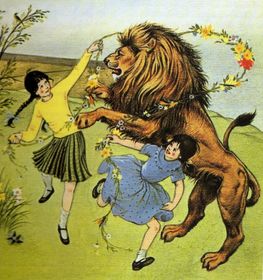 By Ruth Brown Martens Therefore, since we have so great a cloud of witnesses surrounding us, let us also lay aside every encumbrance and the sin which so easily entangles us, and let us run with endurance the race that is set before us, fixing our eyes on Jesus, the author and perfecter of faith, who for the joy set before Him endured the cross, despising the shame, and has sat down at the right hand of the throne of God. For consider Him who has endured such hostility by sinners against Himself, so that you will not grow weary and lose heart. --Hebrews 2:1-3 “Oh, you’re real, you’re real! Oh, Aslan!” cried Lucy, and both girls flung themselves upon him and covered him with kisses. “But what does it all mean?” asked Susan when they were somewhat calmer. “It means,” said Aslan, “that though the Witch knew the Deep Magic, there is a magic deeper still which she did not know. Her knowledge goes back only to the dawn of time. But if she could have looked a little further back, into the stillness and the darkness before Time dawned, she would have read there a different incantation. She would have known that when a willing victim who had committed no treachery was killed in a traitor’s stead, the Table would crack and Death itself would start working backward. And now—” “Oh yes. Now?” said Lucy, jumping up and clapping her hands. “Oh, children,” said the Lion, “I feel my strength coming back to me. Oh, children, catch me if you can!” He stood for a second, his eyes very bright, his limbs quivering, lashing himself with his tail. Then he made a leap high over their heads and landed on the other side of the Table. Laughing, though she didn’t know why, Lucy scrambled over it to reach him. Aslan leaped again. A mad chase began. Round and round the hilltop he led them, now hopelessly out of their reach, now letting them almost catch his tail, now diving between them, now tossing them in the air with his huge and beautifully velveted paws and catching them again, and now stopping unexpectedly so that all three of them rolled over together in a happy laughing heap of fur and arms and legs. It was such a romp as no one has ever had except in Narnia; and whether it was more like playing with a thunderstorm or playing with a kitten Lucy could never make up her mind. --The Lion, The Witch and the Wardrobe* I never think of Christ’s joy when I think about Easter. I think about his suffering and pain and death. I think about his agonized prayer in the garden. I think about the betrayal, the blood, the beatings, the whipping and what an excruciating way to die crucifixion is. I think about Jesus gritting his teeth, setting his mind and forging on directly into the heart of darkness. I think about the work of the cross. I think about the fact that this work was required if salvation was to be accomplished. By Caleb Ratzlaff
I remember growing up thinking that the Book of Revelation was impossible to understand. It wasn’t until a few years ago that I was able to acquire a “toehold” on the meaning of the text. This came through a better understanding of the history of apocalyptic writing and a few of its distinctive markers. What does the word apocalyptic mean? Often we think the word “apocalyptic” refers to the end times or the destruction of the world. This is partially correct. But a more accurate description defines apocalyptic as the transition between historical ages. As a description of a historical transition, apocalyptic literature describes the old age coming to an end as it experiences destruction and then the beginning of a new age. Although there are many distinctive characteristics of Apocalyptic literature, I want to consider two: that it originates in oppressive situations and that it uses insider language. By Caleb Ratzlaff
This post was originally published on the Institute for Christian Studies' blog, groundmotive.net. Simon of Cyrene, as his name suggests, was a visitor to Jerusalem. His story is found in all three synoptic gospels but is noticeably absent in John’s account. Each gospel account begins with Jesus mocked and beaten by soldiers, after which he descends to Golgotha. However, as he begins his descent, the soldiers force a man from Cyrene, Simon, to carry Christ’s cross on his behalf. I want to draw your attention to three aspects of this story. First, Christ needs help, he depends on Simon. Simon, in a sense, saves Christ’s life. Without help, it seems, Christ would have died even before he was able to begin his march towards the place of the skull. Second, Simon is forced to help, although just a sentence or two in each gospel, each account makes sure to specify that Simon doesn’t have a choice in the matter. Finally, it’s noteworthy that the idea of carrying one’s cross is foreshadowed in the Gospel of Luke. In Luke Chapter 14, Christ tells his disciples that the cost of discipleship will require them to a) hate their family and ultimately hate their own life; and b) take up their cross and follow him. Although I don’t want to discuss the specific meaning of this verse here, I think it’s fair to say that Jesus, and Luke specifically, considered carrying one’s cross to be related to one’s sense of belonging to a particular family. With these three points in mind, let us consider a contemporary parallel. Jean Vanier recently wrote an op-ed for The Globe and Mail that addressed the issue of assisted dying. Although some may be disappointed that Vanier doesn’t absolutely condemn assisted dying, I believe that he accurately describes a dangerous failure in our society that must be considered regardless of our views on this sensitive issue. By Erika Klassen
When God came to live on earth as a human being, He entered into a culture and a religion that had many, many dark places full of fear and ignorance. Jesus came to bring light. He came to bring the Kingdom of God to earth as it is in heaven. He came to show us a new vision and a new way of life. In the first century a woman was defined almost exclusively in terms of her family relations. One of the biggest issues shrouded in darkness was the role and treatment of women. Jesus lived in an age of sexual discrimination. Women were dehumanized, viewed as objects and property. Most were banned from full participation in public life or any type of leadership role. Two primary roles of women were: raising children and satisfying their husband’s desires, sexual or otherwise. One day a Jewish woman called out to Jesus, “blessed is the mother who gave birth and nursed you,” to which Jesus replied, “blessed rather are those who hear the word of God and obey it.” Jesus wanted to make it clear that a woman’s status was not dependent on the children she bears: her identity comes from God. 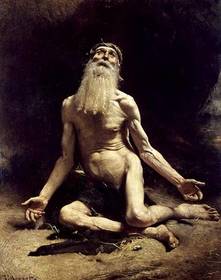 By Caleb Ratzlaff Although considered the oldest book of the Bible, the Book of Job was probably recorded around the same period as the Book of Daniel and the Book of Isaiah, during what’s known as the period of Exile. During this time period a number of Israeli tribes were taken captive by Babylon (Daniel, in fact, is one of these captives). At the time it was recorded many in Israel would have identified with Job. Like Job, the Israelites felt their current lot in life was unfair, that the scale of life was imbalanced. From their perspective, God shouldn't have handed them over to their enemies, just as Job shouldn’t have been handed over to Satan. Before considering Job’s suffering, I’d like to reflect on the imbalanced scale in my own life. Last week I volunteered a lot of my time. I spent three and a half days helping my father-in-law replace the roof on his greenhouse, which is over a square acre in size. This was dangerous work. We had to walk the gutters between the peaks of the greenhouse roofs that were three stories high without harness or support. The slightest breeze could have easily swept the giant piece of plastic from the house and us with it. Then, yesterday, after helping my father-in-law, I went to my father’s and helped butcher turkeys. I’m not complaining, I enjoyed the hard work. It made me consider, however, the debts we owe one another. We have a saying, Dad and I, that volunteer work among friends and family is “money in the bank”, meaning when you volunteer for friends and family the other is in your debt. Thinking about this, however, I realized that the balance of father and my father-in-law was pretty skewed to their side. I owe them so much that no amount of volunteer work on my part could ever satisfy my debt. This is true for many of us, we owe a tremendous amount to our parents or parent figures. For some, however, with irresponsible parents, the scales are imbalanced in the opposite direction, their parents actually owe them. And, it’s entirely possible that these irresponsible parents will never be able to atone for their mistakes. In general, however, I think it’s true that the youth carry a debt that will never be returned. It’s only because of the grace of our parents or past generations that we are free to live ordinary lives. At best, our parents and our inheritance, encourages us to live on, using what’s been given us. Through their mercy, we are freed from our impossibly large debt and blessed to transcend the gift given. 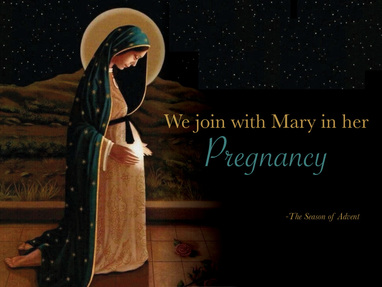 By Rosilee Sherwood I thought for a long time that GOD was up here and WE were down here and everything up there was good and wonderful and holy and amazing and everything down here was bad and ugly and just the everyday crap you had to put up with. I would come to church on a really good day or go on a retreat, or to a conference or something and I would (hands meet) MEET GOD. I would have this wonderful experience where I got to FEEL God and I thought that’s what being a Christian was all about. People said that God was always with me, but that was something I just had to believe, it didn’t really make much sense in my real life at the time. What I thought was that everything holy, everything spiritual, everything meaningful and life-changing, was separate from the everyday things, the practical things, the hard things. One year during advent I started to think and talk about this separation. Someone pointed out to me that this might not be the most helpful way of understanding things. During Advent, we anticipate Christmas, and we prepare to receive Jesus, or God, as a human being. Advent has become my favourite time of year as I always look forward to hearing Vic share his passion for the Incarnation – God made flesh. As I started thinking about this, I began to see that for me, God becoming a human, Mary becoming pregnant and Jesus being born, this means that there is no separation. I began to discover that for me, thinking of all of these things as separate doesn’t give me a good picture of what life is really like. Us and God, of the holy things and the mundane things, beautiful things and boring things, life, and death. The separation I had learned about, the idea of God being up here and us down here, wasn’t the most revealing way of understanding God for me. I was beginning to see a different way of painting the picture of what God is like. It occurred to me that perhaps when we consider Advent and Christmas, we can see that we are here, AND God is here. The incarnation, God becoming human, shows us that the holy things, the good things, the beautiful and wonderful things, they are here too. This is not a new idea. The Franciscan Monks, who have been around for centuries, believe that there is no clear distinction between the sacred and the “profane” or ordinary, because Christ existed in matter, from all eternity. When the Bible talks about creation, it says in Colossians that in Jesus, all things were created. Everything was created through him and for him. Jesus, holds everything together. For the Franciscans, God is everything – a rock, a tree, an animal, an angel, a human. So that is what I want to share with you. I want to share with you the idea that GOD IS WITH US. Goodness and beauty. They are with us. The main way that I think of God, is as LOVE. So, Jesus as a baby in a dirty manger means that LOVE is not something far away or separate from everyday life. Love is with us!! |
AboutThis blog has multiple contributors. The beliefs and opinions expressed by each are one-sided and partial. We hope that by confronting and expressing our one-sidedness through dialogue this blog is able to reflect the life of Westview as we gather together and live in the Queenston Neighbourhood and beyond. If you are interested in contributing, please contact Caleb at [email protected]. Podcast: westviewchurch.podbean.com
Recent ArticlesHow a Virus Helps Us Understand Easter
Troubling Children's Stories: Evil in David's Heart Troubling Children's Stories: Intro Saved by the Work of Christ's Grandmothers: 3/3 Glowriding in the Kingdom of Heaven 2019 Annual Report MOTHER MARY REVOLUTIONARY Part 2/3 How Ruth Saves Us From the Affordable Housing Crisis and Other Sins - Part 1 of 3 Jesus Isn’t Talking to You WC4W 10th Anniversary Vid! Transforming Abuse through Mutual Submission The Power of Invisibility Repent and Burn: The Baptism of John the Baptiser Apocalyptic Literature: A Primer to The Book of Revelation Archives
January 2023
Categories
All
|

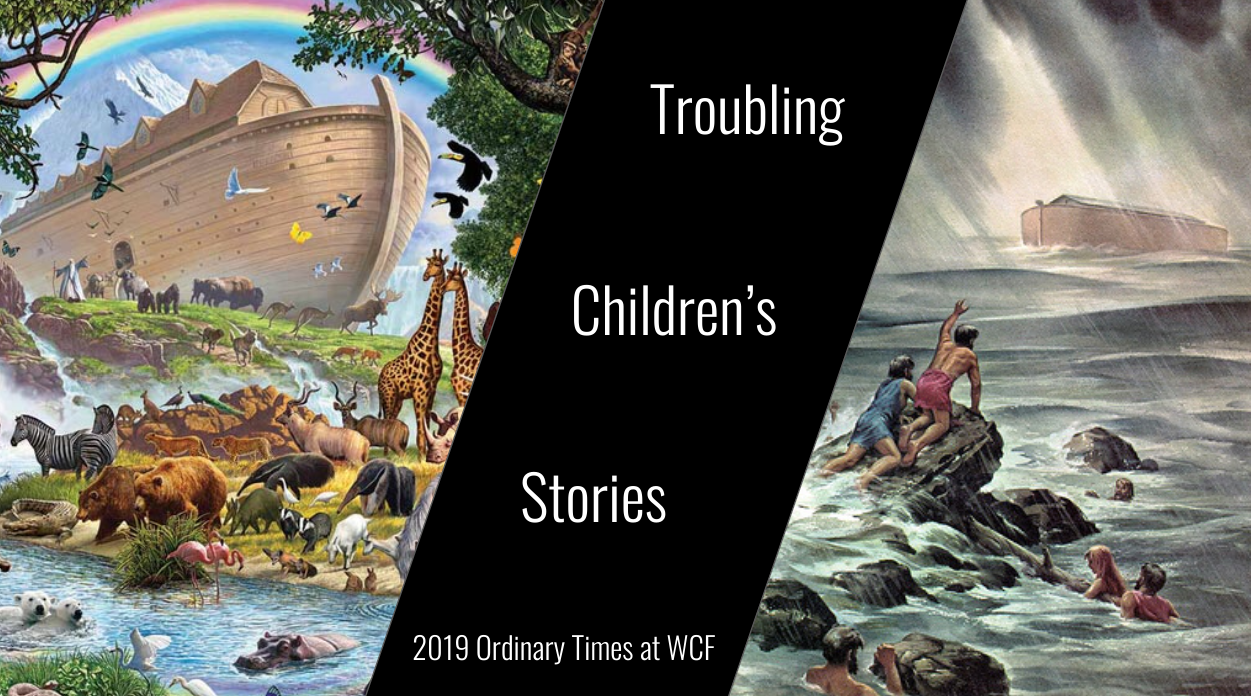


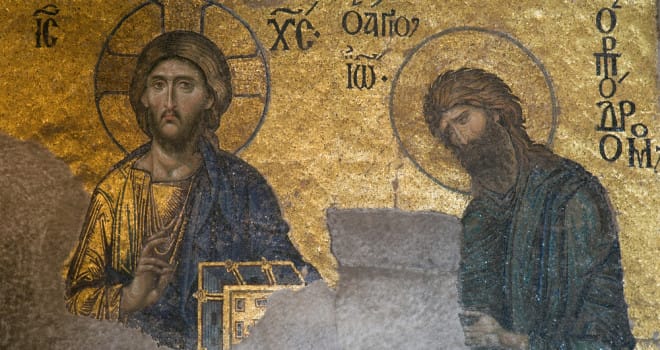

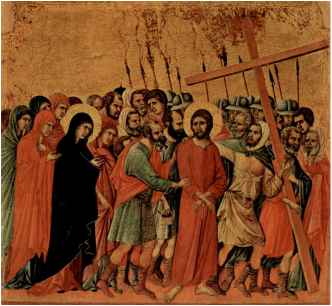
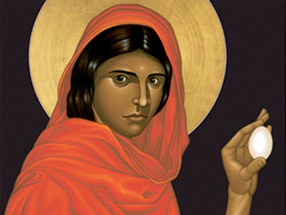
 RSS Feed
RSS Feed

